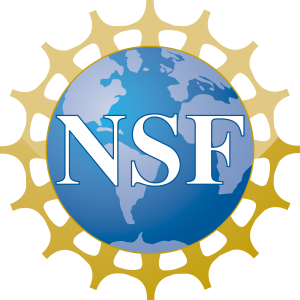 The following is a guest blog post by Tracy Kimbrel, Program Director, Computing and Communication Foundations, Computer and Information Science and Engineering, National Science Foundation.
The following is a guest blog post by Tracy Kimbrel, Program Director, Computing and Communication Foundations, Computer and Information Science and Engineering, National Science Foundation.
The National Science Foundation’s Directorate for Computer and Information Science and Engineering (CISE) recently revised and released the Algorithms in the Field (AitF) program solicitation. AitF aims to promote collaboration between theory researchers and those in more applied areas.
Bridging the gap between theory and practice in the design, analysis, implementation, and evaluation of algorithms can lead to new fields as well as broader cutting-edge applications. The premise is that by working jointly “in the field,” researchers from these different communities will continually inform each other, innovate in their respective areas, and forge algorithms that are simultaneously validated by theory, systems, and applied communities.
The program synopsis reads as follows:
Algorithms in the Field encourages closer collaboration between two groups of researchers: (i) theoretical computer science researchers, who focus on the design and analysis of provably efficient and provably accurate algorithms for various computational models; and (ii) other computing and information researchers including a combination of systems and domain experts (very broadly construed – including but not limited to researchers in computer architecture, programming languages and systems, computer networks, cyber-physical systems, cyber-human systems, machine learning, artificial intelligence and its applications, database and data analytics, etc.) who focus on the particular design constraints of applications and/or computing devices. Each proposal must have at least one co-PI interested in theoretical computer science and one interested in any of the other areas typically supported by CISE. Proposals are expected to address the dissemination of both the algorithmic contributions and the resulting applications, tools, languages, compilers, libraries, architectures, systems, data, etc.
In the two years since AitF was posted, 29 projects have been supported. Many involve collaborations across institutions. The full list of 48 awards, along with links to their abstracts, can be found here. The projects span a diverse range of field areas, including distributed systems, domain-specific programming languages, evolutionary biology, machine learning, networking, parallel systems and applications, societal decision-making, transportation, and more.
The program encourages further submissions in these areas as well as many others. As noted in the solicitation, all areas of research supported by CISE are sought to represent the field components of AitF projects.
Similar to the 2016 solicitation, there is no distinction between classes of projects based on size or characteristics. The budget limit of $800,000 is a maximum only and no minimum is specified. Smaller, exploratory projects as well as larger ones are appropriate for AitF. Proposals are due January 26, 2017.
The program directors welcome inquiries about the program. Contact information is available on the program page and in the solicitation, NSF 16-603.
The Computing Community Consortium (CCC) hosted a Theoretical Foundations for Social Computing Workshop in June 2015, which brought together 35 experts in related fields to discuss the promise and challenges of establishing mathematical foundations for social computing. It highlighted how the theory and application fields could work together. See the workshop report here.









